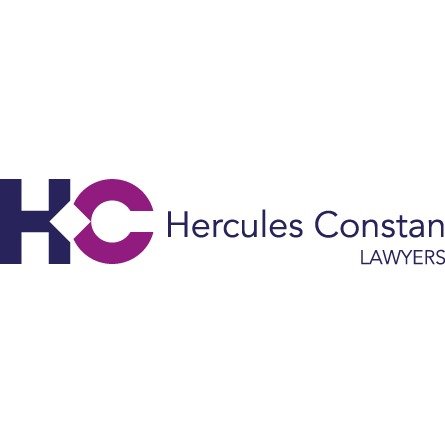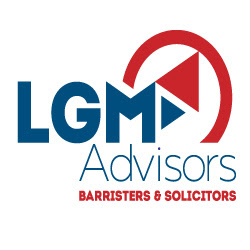Best Corporate & Commercial Lawyers in Melbourne
Share your needs with us, get contacted by law firms.
Free. Takes 2 min.
List of the best lawyers in Melbourne, Australia
About Corporate & Commercial Law in Melbourne, Australia
Corporate and commercial law in Melbourne covers the legal frameworks that govern businesses, corporations, and commercial transactions. This area of law encompasses a wide range of activities involving the creation, operation, regulation, and dissolution of companies and commercial relationships. Whether you are starting a business, entering into contracts, merging with other companies, or managing disputes, understanding corporate and commercial law is crucial for compliance and successful business operations in Victoria.
Why You May Need a Lawyer
Engaging a lawyer with expertise in corporate and commercial law can help you navigate complex legal requirements, mitigate risks, and ensure your interests are protected. Common situations where people or businesses in Melbourne may require legal assistance include:
- Starting or registering a new business
- Drafting, reviewing, or negotiating business contracts
- Establishing partnership, shareholder, or joint venture agreements
- Managing mergers, acquisitions, or sales of businesses
- Handling disputes between business partners or shareholders
- Addressing employment or workplace law matters
- Ensuring regulatory compliance and governance
- Restructuring or insolvency situations
- Protecting intellectual property and confidential information
- Responding to legal claims against the business
Local Laws Overview
Victoria's corporate and commercial legal landscape is shaped by both federal and state laws. The key Australian legislation includes the Corporations Act 2001, which outlines how companies are formed, operated, and wound up, with oversight by the Australian Securities and Investments Commission (ASIC). Victorian state laws also have a significant impact, particularly in areas of contracts, employment, property, and trading regulations. Additional local rules can affect businesses in the City of Melbourne, such as licenses, planning permits, and local council requirements. Understanding both federal and state legal requirements is essential for any business operating in Melbourne.
Frequently Asked Questions
What is the difference between a corporation and a partnership in Melbourne?
A corporation is a separate legal entity registered under the Corporations Act 2001, giving it its own rights and obligations apart from its owners. A partnership consists of two or more people carrying on business together, sharing profits, liabilities, and management under a partnership agreement. Each has different implications for liability, taxation, and regulation.
What is the process for registering a business in Melbourne?
To register a business in Melbourne, you need to apply for an Australian Business Number (ABN), register your business name with the Australian Securities and Investments Commission, and comply with any local council registration or permit requirements. Businesses structured as companies must also register with ASIC for an Australian Company Number (ACN).
When should I use a written contract?
Written contracts are recommended whenever you enter into business relationships or transactions, including with customers, suppliers, partners, or employees. Written contracts provide clarity, minimise misunderstandings, and offer stronger legal protection if disputes arise.
Can I operate a business from my home in Melbourne?
Yes, but you must comply with zoning regulations, obtain any required permits from the local council, and ensure your activities do not contravene residential use restrictions. Additional rules may apply if you employ staff or operate certain business types from home.
How are business disputes resolved in Melbourne?
Most business disputes are resolved through negotiation or alternative dispute resolution methods such as mediation. If necessary, matters can be taken to state courts such as the Victorian Civil and Administrative Tribunal or the Supreme Court of Victoria, depending on the scale and nature of the dispute.
What are directors' duties under Australian law?
Company directors must act in good faith, in the best interests of the company, with care and diligence, and avoid improper use of their position. Breaching these duties can result in personal liability, civil penalties, or criminal charges under the Corporations Act.
Do I need a shareholders' agreement?
While not legally required, a shareholders' agreement is strongly recommended for companies with multiple shareholders. It sets out how the company is governed, how decisions are made, share transfers, and how disputes are handled, reducing potential conflicts.
What should I consider before buying a business in Melbourne?
Before buying a business, conduct thorough due diligence, including reviewing financial records, contracts, assets, liabilities, employee arrangements, and regulatory compliance. Legal advice will help you identify risks and negotiate appropriate contract terms.
How do mergers and acquisitions work in Australia?
Mergers and acquisitions involve the buying, selling, or combining of businesses. The process typically requires due diligence, negotiation of terms, transfer of assets or shares, regulatory approvals, and compliance with Australian Competition and Consumer Commission regulations.
Are there any specific employment laws I should be aware of?
Employment in Melbourne is governed by both state and federal laws, including the Fair Work Act 2009. Employers must comply with the National Employment Standards, modern awards, workplace health and safety laws, anti-discrimination legislation, and local workplace regulations.
Additional Resources
There are several resources and bodies in Melbourne and Victoria that offer guidance on corporate and commercial matters, including:
- Victorian Small Business Commission - provides dispute resolution and information for small businesses
- Australian Securities and Investments Commission (ASIC) - regulates companies and financial services
- Business Victoria - offers information on starting and managing businesses in Victoria
- Law Institute of Victoria - offers lawyer directories and legal information
- Victorian Civil and Administrative Tribunal (VCAT) - handles a range of business dispute matters
- Australian Competition and Consumer Commission (ACCC) - regulates competition and consumer protection
Next Steps
If you need legal assistance in the field of corporate and commercial law in Melbourne, start by identifying your legal issue and gathering any relevant documents. Seek advice from a qualified lawyer who specialises in corporate and commercial matters. Many law firms offer initial consultations that can help you understand your rights, obligations, and options. Document your concerns and desired outcomes clearly when meeting a lawyer. Stay informed through reputable resources, maintain records of all business dealings, and take prompt action to prevent issues from escalating. Engaging professional legal support early can save you time, money, and stress, and help your business thrive in Melbourne’s dynamic commercial environment.
Lawzana helps you find the best lawyers and law firms in Melbourne through a curated and pre-screened list of qualified legal professionals. Our platform offers rankings and detailed profiles of attorneys and law firms, allowing you to compare based on practice areas, including Corporate & Commercial, experience, and client feedback.
Each profile includes a description of the firm's areas of practice, client reviews, team members and partners, year of establishment, spoken languages, office locations, contact information, social media presence, and any published articles or resources. Most firms on our platform speak English and are experienced in both local and international legal matters.
Get a quote from top-rated law firms in Melbourne, Australia — quickly, securely, and without unnecessary hassle.
Disclaimer:
The information provided on this page is for general informational purposes only and does not constitute legal advice. While we strive to ensure the accuracy and relevance of the content, legal information may change over time, and interpretations of the law can vary. You should always consult with a qualified legal professional for advice specific to your situation.
We disclaim all liability for actions taken or not taken based on the content of this page. If you believe any information is incorrect or outdated, please contact us, and we will review and update it where appropriate.
Browse corporate & commercial law firms by service in Melbourne, Australia
Melbourne, Australia Attorneys in related practice areas.

















